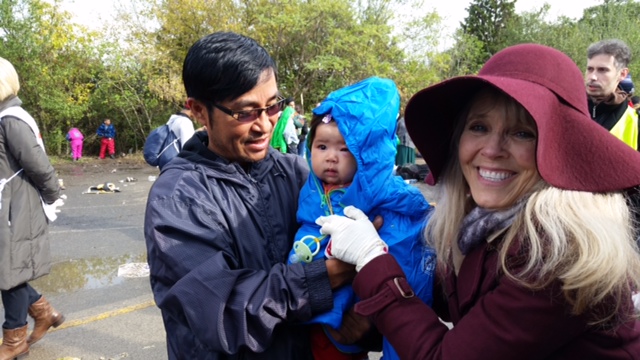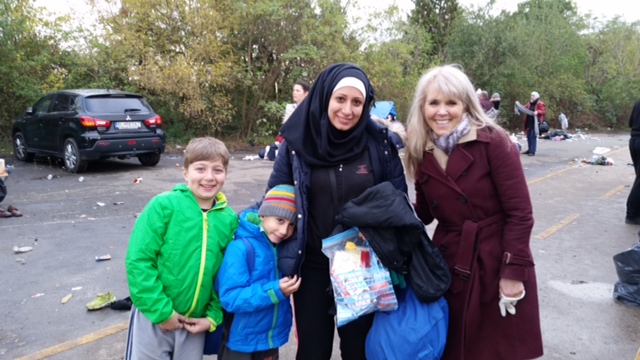Today we commemorate World Refugee Day which marks the historic adoption of the 1951 Convention Relating to the Status Of Refugees. This global treaty recognized in international law the moral duty of nations towards those who face cruel persecution in their countries as well as individuals who find themselves driven from their homes due to war, famine, or natural disasters. This treaty represented a giant step along humanity's road to building a more just and decent world for all people. And yet the principles underlying this treaty are ancient, venerable, and live in the hearts of people of goodwill in every nation and culture.
The ethical and religious call to welcome the stranger, give help to the widow and the fatherless, and to be our brother's keeper, truly speaks to the "better angels of our nature" and in 2018 it calls to us more insistently than ever. The United Nations estimates that 68.5 million people are currently displaced from their homes due to persecution, war, poverty, and other causes. This staggering figure represents the largest global refugee population since the 2nd World War. How individual nations meet this challenge will be a test to not only our resilience and generosity, but in the deepest sense, our national character.
On this World Refugee Day, the Lantos Foundation calls upon governments and citizens to reject the siren call of ultra-nationalism and xenophobia. We urge nations to remember the lessons of history; that we can not and must not avert our eyes from the terrible crises afflicting our fellow human beings. We must remember that if we ignore the suffering of our brothers and sisters, their tragedies will, in time, find their way to our doorsteps. For reasons of both compassion and self-interest we must engage our hearts, minds, and strength to alleviate the refugee crisis across the globe. We should also remember that grateful and talented refugees have immeasurably strengthened the lands that have welcomed them. The late Congressman Tom Lantos, a most eloquent and passionate advocate for human rights, was one such immigrant to America and his gratitude and contributions to his adopted country were both larger than life. In the spirit of Congressman Lantos, we commemorate World Refugee Day and proclaim the shared humanity of all people and our solemn duty to stand with those who have been driven from their homes.



